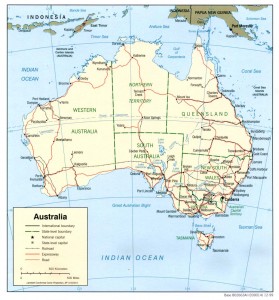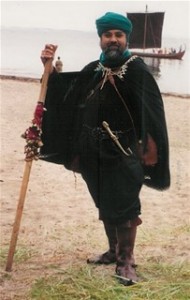As well as 80 being a nice round number, this show also marks the third anniversary of the podcast so we are telling the story of culture through some of the many pieces we have done over the last three years.
So this is a sort of audio Frequently Asked Questions to the topic of intercultural communication and competence.
Q1 What is culture? Are the Screaming Men of Finland culture? Is what they do singing?
Listen as Laurent explores the idea of culture as the software of the mind with two guests.
Q2 Why do we need to know about intercultural differences?I once had a colleague who was very proud of the fact that he had gone to work in Morrocco without doing any research beforehand; the idea being that the voyage of discovery was all the more pleasurable that way. However when I spoke with Mark Karstad about his time as a technical assistant at the Dubai Women’s College I could appreciate the value of a little forewarning about the expectations of behaviour between males and females there.
Q3 What are Critical incidents?These are the times when you break the unwritten rules of culture. These tend to be the incidents that make the most impression on you. Here are a couple; firstly we hear from Fernando, a Spaniard, talking about a strange party he was invited to during his stay in Germany.
And a second example from Turkmenistan where American peace corps workers come to work and often wonder about some of the situations they witness.
You can see that things can be very different and that this can take some gettimg used to. So this brings us to
Q4 What is Culture shock? This is when so many rules are different that you get a psychological reaction.
Listen how Mark Anderson from South Africa describes his reaction on accepting a job in Korea.
Q5 Can you learn cultural competence? We have discussed several different ways in which you can train intercultural competence. One of the most innovative was surely the Swedish Living Library initiative.
Q 6 Are cultural differences apparent in different communication media such as email and virtual worlds? Does IT flatten the world and make everyone the same or does it also reveal cultural differences? I discussed this in relation to the Virtual World Second Life with Helen Keegan and Sus Nyrop.
Q7 Is there a connection between culture and language? Language is intimately connected to culture. For example Europeans going to China may experience much more of a culture shock because their languages have so little in common. I discussed the issue with Ken Carroll in Shanghai.
Greenlandic is not only a little spoken language but also difficult to learn for other reasons. Hear why from Jens Nyeland, a Dane who worked in Greenland for 3 years.
Q8 Are there any topics Which tend to arise more often? Looking back it seems that we talk a lot about education. Here is one example of the difference in attitude to learning as described by Bob Compton of 2 Million Minutes
Another topic which crops up rather a lot is the link between culture and music. We started with the screaming men of Finland and this is an extract of Weightless Escape by Moussa Diallo, a prime mover behind the Global Music Festival in Grenaa Denmark whose aim is to build bridges between the native and immigrant populations in Denmark.
So that’s a taste of what we’ve been doing over the last 3 years. Thank you to everyone who has taken part. We couldn’t have done it without you. If you have any comments then you can add them to our blog .
The next show will be coming to you from Germany on April 17th.
So long…stay tuned!
The host of this show is Anne Fox:
Editor: Jan Warnecke


 Just as much as Achill seems to have become part of the annual calendar so does the
Just as much as Achill seems to have become part of the annual calendar so does the 






